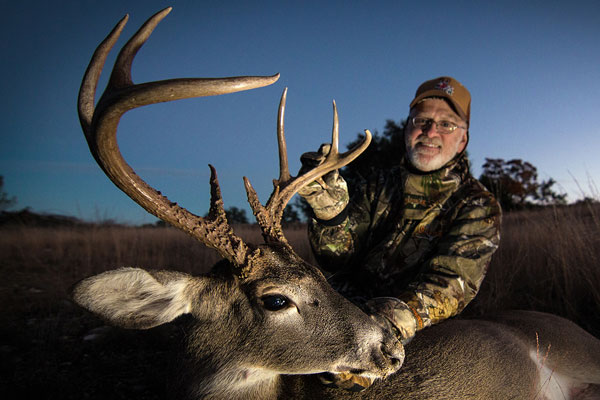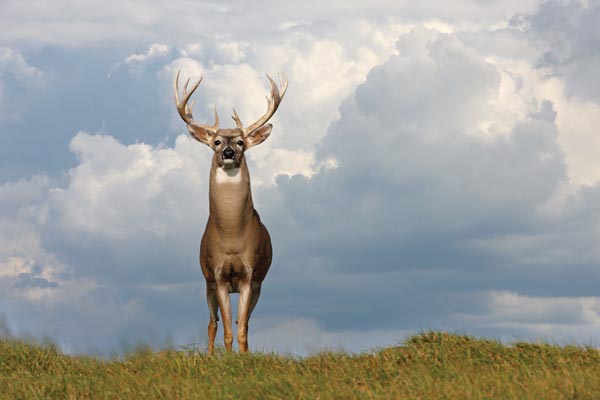April 28, 2016
By Gordon Whittington
The question of who owns our native game animals isn't quite as easy to answer as it might seem. If you operate under the so-called "North American wildlife model," as virtually all wildlife agencies do, most native vertebrates belong to the public as a whole.

That garden slug on your petunias or mouse behind the refrigerator is fair game, but a deer or squirrel in the woods is another matter. Even if a game animal stays on one farm 24/7/365, until killed it belongs to no one. Even then, any and all rules regarding harvest must be followed.
That sounds pretty clear, and it's both understood and accepted by most folks. But as with many other "simple" concepts, the devil can be in the details. And over time, the details of wildlife ownership have mutated into a murky mess. To show how slippery this slope can be, take the case of a world-class buck poached in Kansas several years ago.
Advertisement
The outlaw who shot the deer got busted because, when he entered it into the Kansas Monster Buck Classic, someone recognized it as one caught on trail camera several counties away. An investigation by Kansas Department of Wildlife & Parks led to a confession by the poacher. He admitted having illegally shot the deer — a giant scoring well into the 190s Boone & Crockett — on someone else's land.
"That buck wasn't their property in real life, so how could it be in death?"
Advertisement
That immediately led to charges being fled, as well as state confiscation of the huge 7x7 rack. When the son of the offended landowner tried to get the antlers returned to him, KDWP refused. As well the agency should have, in my view.
The fact the buck was poached was obviously regrettable — but after it happened, what claim could the family actually have had to the rack? That buck wasn't their property in real life, so how could it be in death?
Owning acreage in two states, I'm all for incentivizing private landowners to manage wildlife habitat and populations responsibly. But we can take it too far. There's danger in letting an individual own any wildlife that step onto, slither through or fly over that patch of dirt.
Returning a poached deer to a property owner would create its own issues. What might keep an unethical landowner from killing a buck out of season or at night, then reporting the dead deer as "poached" and demanding its return after the investigation? If a landowner could demand any deer that walked on his or her land be given "back," it could lead to profiting from illegal activity.

Along with the ever-increasing monetary value of wildlife, we've seen a push for stronger private property rights. In some cases this has involved an effort to allow personal ownership of native game. Making that change would turn wild deer into just another form of livestock, subject only to the whims of the landowner. The only regulation of that resource would lie with a state or province's animal health commission, not its wildlife agency.
Even without such a shift, the line between "wild" and "captive" deer grows ever less distinct. In Ohio last fall, several big bucks escaped from a highfenced tract. One of the deer still carried its ear tag when shot by a hunter. But the guy didn't care — in fact, he knew the buck was an escapee before he shot. He was proud of his kill.
So does this legally taken, formerly captive buck belong in the record book?
The questions have only just begun.

